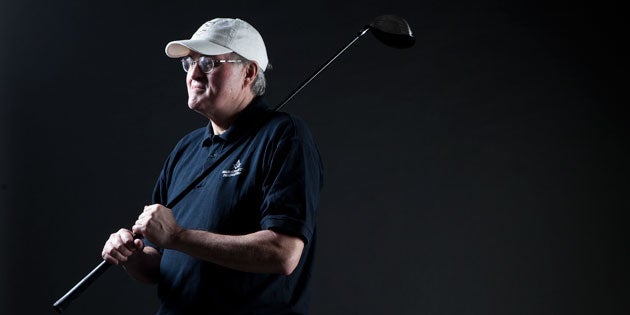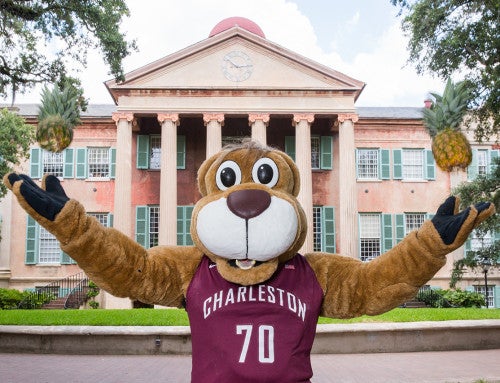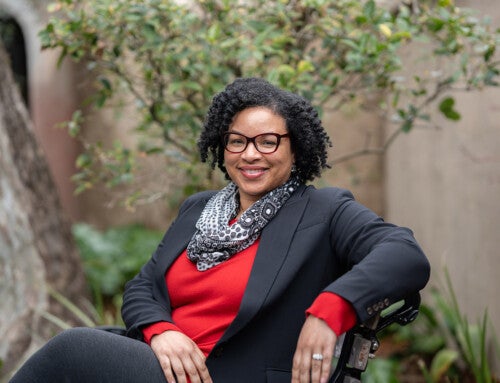Golf can be frustrating. You might be strong, fast, smart, agile and all-around athletic, but it doesn’t mean you’ll do well on the golf course. As the old saying goes, golf is “an ineffectual attempt to put an elusive ball into an obscure hole with implements ill adapted for the purpose.”

Peter Alan Smith (left) and his cycling partner earned the U.S. National Silver Medal for Tandem Velodrome Cycling in 1995.
That observation, often attributed to President Woodrow Wilson, is a fitting sentiment for a lay player. However, even great athletes, golfers included, are frequently frazzled by the game. Consider slugger Hank Aaron, who quipped, “It took me 17 years to get 3,000 hits in baseball. I did it in one afternoon on the golf course.”
Then there’s Raymond Floyd, who won four major golf championships in his career, claiming, “They called it golf because all the other four-letter words were taken.”
OK, we get it. Golf is tough and bound to break your heart, no matter how many times you’ve played. Now imagine playing golf blind.
That’s what Peter Alan Smith, a.k.a. the Midnight Golfer, does nearly every week here in Charleston. That’s when he’s not working as a trust administrator for John Hancock Insurance or teaching a risk management and insurance class as an executive-in-residence within the College’s School of Business’ finance department.
Smith, who began losing his sight as a teenager after being diagnosed with the degenerative disease retinitis pigmentosa, has turned out to be a talented golfer, routinely posting scores of 110 for 18 holes, which is better than many casual players who do have the aid of vision. And blindness, says Smith, isn’t always a disadvantage on the links.
“I don’t see the hazards,” Smith says of sand traps and water features. “I don’t think about them at all.”
Golf is only the latest adventure for Smith, who has also run the Boston Marathon twice and won the U.S. National Silver Medal for Tandem Velodrome Cycling (he rides in the back, of course) – an experience he deems “a rush.”
VIDEO: Learn more about Smith and his accomplishments.
He has also traveled abroad alone, bringing with him a precisely ordered stack of index cards detailing addresses and instructions. While enjoying a journey to Europe, for example, he would dole the cards out to cab drivers, concierges and security officers, advising them of his needs. This system worked for the most part, although he did get off at the wrong train stop once and was disoriented until finding some help.
While others might worry over the fate of the solitary blind traveler, Smith says his adventures are always safe and enjoyable so long as he anticipates problems, plans for them accordingly and then executes his plan.
And if it doesn’t work out quite as expected?
“Just show up and see what happens is the way to go,” he says.
Because he lost his eyesight gradually, Smith was able to adapt his lifestyle in a way that meshed with the changing capabilities of his body. In the realm of athletics, sometimes this meant competing in events with a partner; other times it meant changing sports entirely.
“I always found a workaround to get me to the next thing,” says Smith, who graduated from Syracuse University and earned a master’s in international business relations from Harvard University.
Never has he allowed blindness to derail his plans. Instead, he’s made accommodations for his condition and forged ahead.
“I’m glad I didn’t accept any limitations,” says Smith. “We always talk about the downward spiral. Well, there’s an upward spiral, too. Success leads to success.”
This article originally appeared in the fall 2015 issue of the College of Charleston employee newsletter, Portico.




